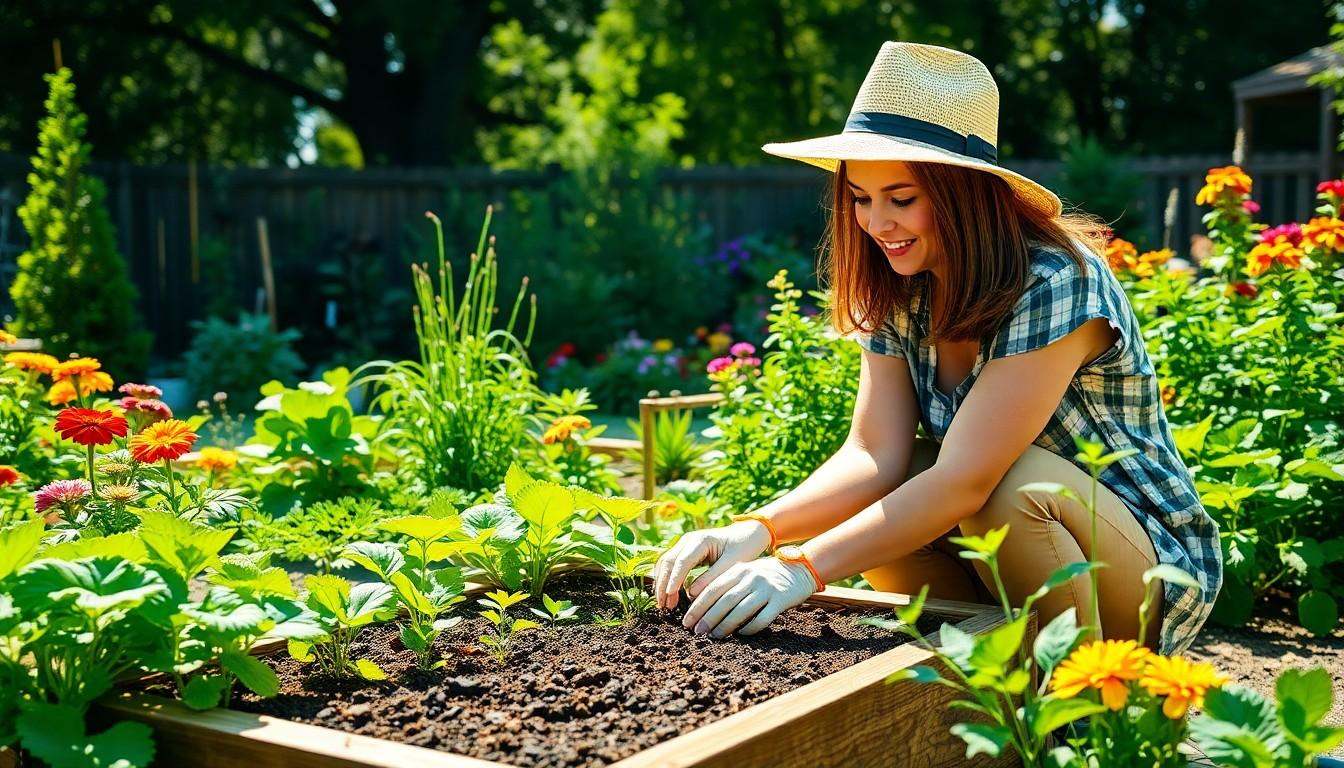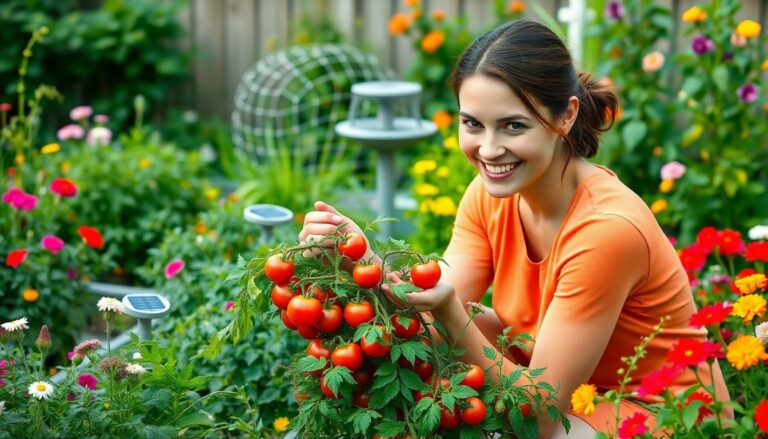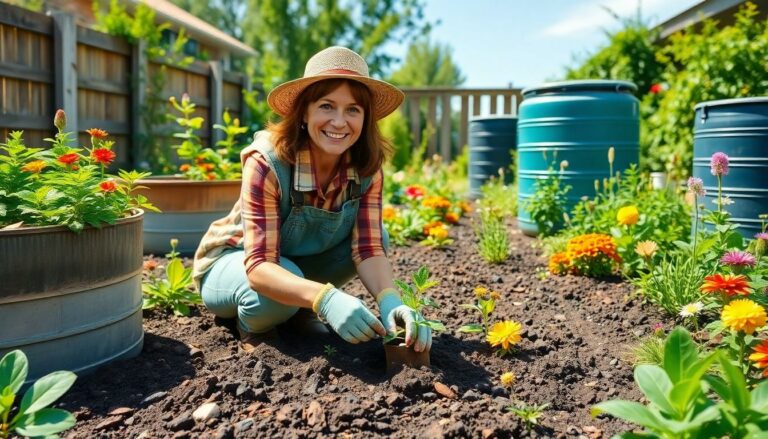Imagine stepping into a garden that not only delights the senses but also helps save the planet. Sustainable gardening isn’t just a trend; it’s a lifestyle choice that turns every green thumb into an eco-warrior. With a little creativity and some smart strategies, anyone can cultivate a thriving garden that’s as kind to the Earth as it is beautiful.
sustainable garden ideas
Sustainable gardening offers numerous advantages that extend beyond aesthetics. These benefits enhance environmental health and create economic opportunities.
Environmental Impact
Sustainable gardening significantly reduces carbon footprint. It fosters biodiversity by promoting native plants and habitats for local wildlife. Organic gardening practices minimize chemical runoff, leading to cleaner water sources. Engaging in composting enriches soil, enhances moisture retention, and decreases landfill waste. Urban spaces benefit from green roofs and community gardens, which counteract heat islands and improve air quality. Ultimately, sustainable gardening contributes directly to ecological balance and resilience.
Economic Advantages
Investing in sustainable gardening reduces long-term maintenance costs. Homeowners save money on water bills through efficient irrigation practices like rainwater harvesting. Growing food at home lessens reliance on store-bought produce, cutting grocery expenses. Local markets thrive when community gardens supply fresh, organic produce, creating local jobs and stimulating economic growth. Moreover, sustainable gardening increases property value, making residences more appealing to environmentally conscious buyers. Each of these economic benefits supports a sustainable lifestyle while fostering community well-being.
Types Of Sustainable Garden Ideas
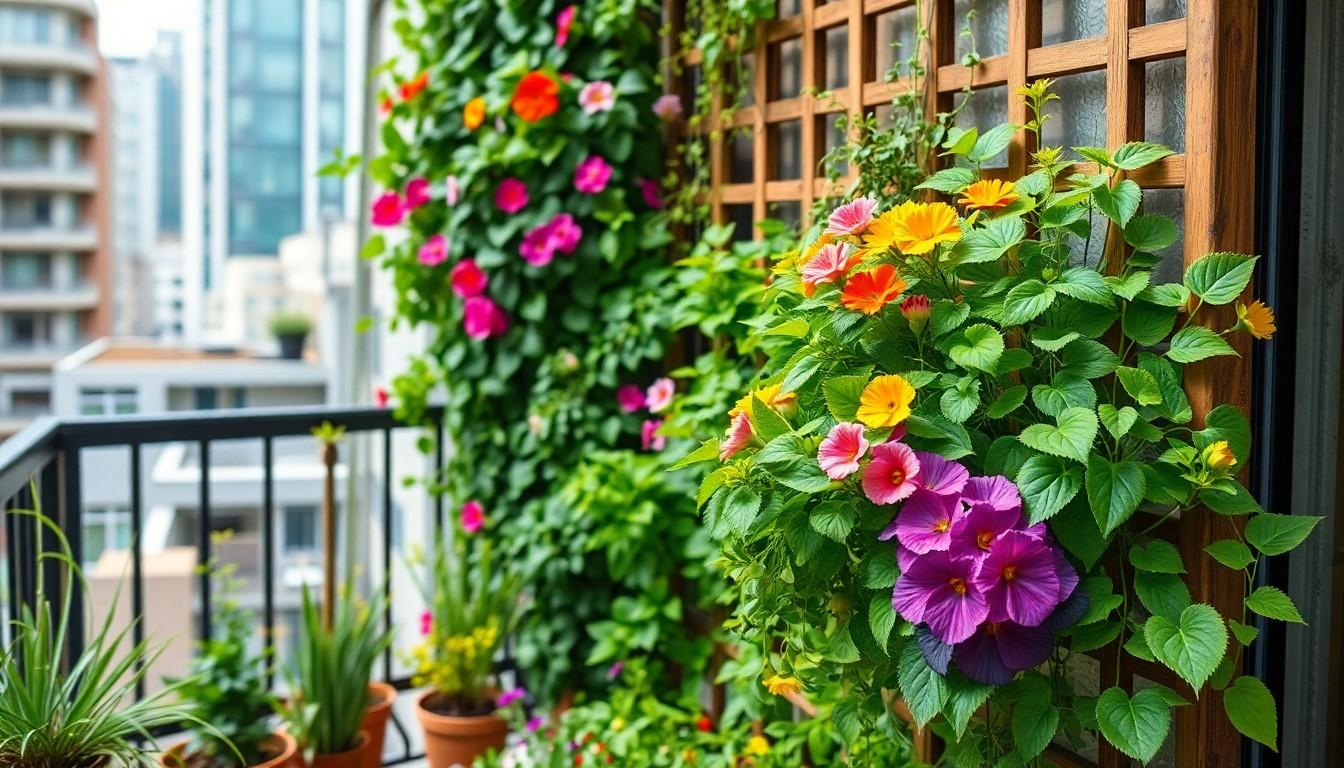
Sustainable gardening encompasses various methods that enhance ecological balance while offering aesthetic appeal. Below are three popular types of sustainable garden ideas that promote environmental health.
Organic Gardening
Organic gardening emphasizes natural processes, avoiding synthetic chemicals. This method involves using compost, natural fertilizers, and organic pest control strategies. Growers cultivate soil health by rotating crops and incorporating cover crops. Many choose native plants that require less irrigation and are resistant to local pests. Local organic produce reduces carbon footprints while providing nutritious food options.
Permaculture Practices
Permaculture practices focus on creating self-sustaining ecosystems that mimic nature. This approach integrates elements like plants, animals, and natural resources into a cohesive system. Through strategic planning, gardeners establish zones for different functions, optimizing space and efficiency. Water conservation techniques, such as swales and rain gardens, help manage runoff and improve soil health. Biodiversity flourishes as diverse plant species coexist, enhancing resilience against pests and diseases.
Vertical Gardening
Vertical gardening maximizes space by growing plants upward instead of outward. This method suits small yards, balconies, or urban environments. Growers install wall planters, trellises, or vertical systems to support climbing plants. Plants benefit from increased sunlight exposure and improved air circulation. Vertical gardens enable easy access for maintenance while improving aesthetics in limited spaces, making gardens more visually appealing.
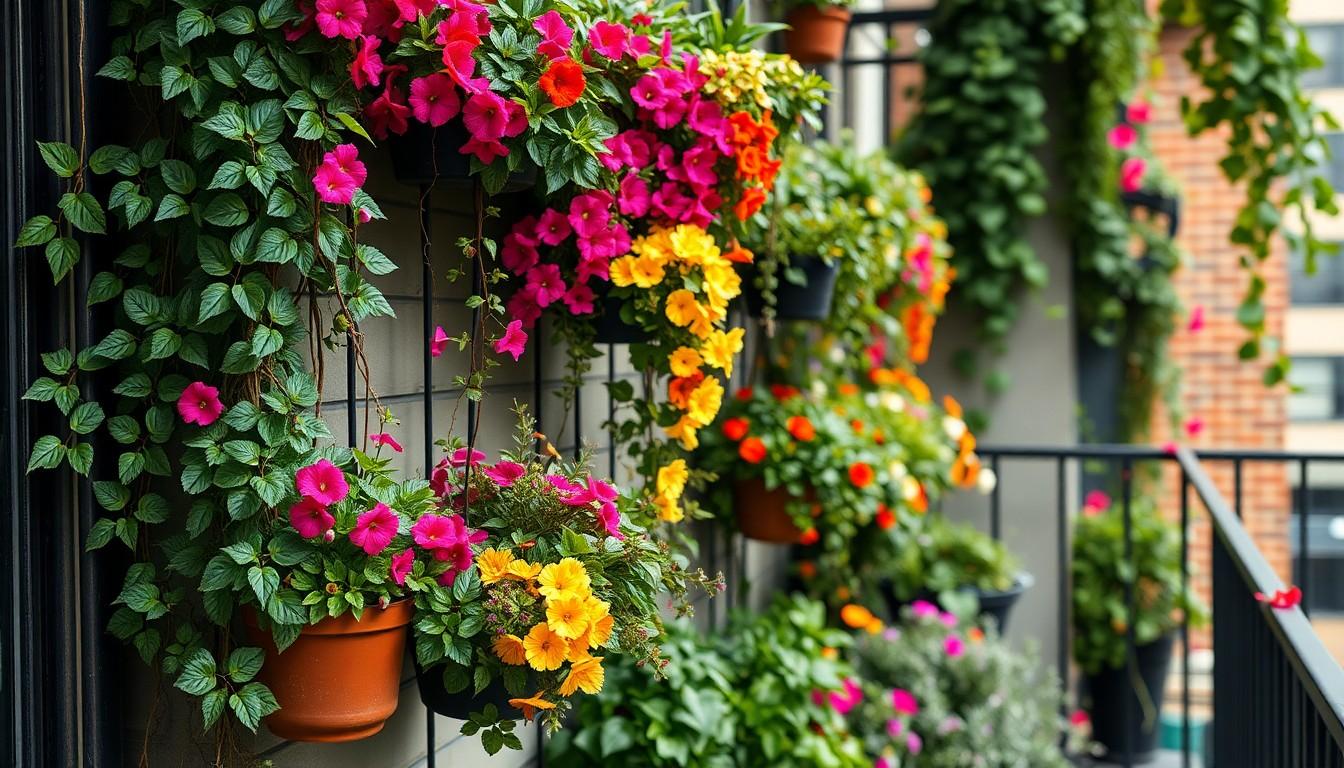
Essential Elements Of A Sustainable Garden
Creating a sustainable garden requires careful consideration of key elements that promote ecological balance. Soil health, water conservation, and biodiversity play essential roles in establishing vibrant, self-sustaining gardens.
Soil Health
Healthy soil serves as the foundation of a sustainable garden. Organic matter enriches soil, enhances structure, and improves water retention. Utilizing compost enriches nutrients and fosters microbial activity. Regularly incorporating cover crops builds fertility and prevents erosion. Testing soil pH ensures ideal conditions for plant growth, promoting a thriving ecosystem.
Water Conservation
Water conservation remains crucial in sustainable gardening practices. Rain barrels collect and store rainwater for irrigation, reducing dependence on municipal supply. Drip irrigation systems provide targeted watering, minimizing waste and evaporation. Implementing drought-resistant plants reduces overall water usage while maintaining garden aesthetics. Mulching retains moisture, suppresses weeds, and improves soil temperature.
Biodiversity
Biodiversity enhances resilience in sustainable gardens. Planting a variety of species attracts beneficial insects and supports pollinators. Companion planting naturally deters pests and facilitates nutrient sharing among plants. Including native plants adapts gardens to local climates and ecosystems, promoting long-term sustainability. Creating diverse habitats fosters wildlife presence and boosts overall garden health.
Tips For Implementing Sustainable Garden Ideas
Creating a sustainable garden involves thoughtful strategies to promote ecological balance. Below are several effective tips to implement these ideas.
Plant Selection
Selecting native plants supports local ecosystems and requires less maintenance. Native species thrive in their natural environment, reducing reliance on water and chemical fertilizers. Incorporating a variety of plants enhances biodiversity, attracting pollinators and beneficial insects. Consider plants that provide year-round interest, including flowers, fruits, and foliage. Opt for drought-tolerant varieties to conserve water and maintain aesthetics during dry periods. Sustainable gardening thrives on teamwork between plants, maximizing the health and productivity of the garden.
Companion Planting
Companion planting involves placing certain plants together for mutual benefits. This strategy can enhance growth, deter pests, and improve flavor. For instance, planting basil alongside tomatoes can boost their respective growth and repel aphids. Incorporate marigolds to deter nematodes and attract pollinators, promoting a vibrant ecosystem. This practice minimizes chemical pesticide use, resulting in healthier crops and soil. Implementing companion planting creates a balanced environment that supports plant health and productivity.
Natural Pest Control
Natural pest control methods provide effective solutions for maintaining a healthy garden. For instance, introducing beneficial insects like ladybugs can help manage aphid populations. Planting herbs such as mint or lavender can deter unwanted pests naturally. Implementing homemade remedies using garlic or soap can also combat insects without harming beneficial organisms. Maintaining diversity in plant selection encourages natural predators, promoting a self-regulating ecosystem. Relying on these methods enhances soil health and sustainability throughout the garden.
enhance personal and environmental well-being
Embracing sustainable gardening is a powerful way to enhance both personal and environmental well-being. By incorporating eco-friendly practices and creative solutions, gardeners can cultivate spaces that are not only beautiful but also beneficial for the planet.
The journey towards a sustainable garden invites individuals to connect with nature while fostering biodiversity and reducing waste. Whether through organic gardening, permaculture, or vertical gardening, every effort contributes to a healthier ecosystem.
Ultimately, sustainable gardening isn’t just about growing plants; it’s about nurturing a lifestyle that respects and enriches the environment for future generations. With each seed planted and every eco-conscious choice made, individuals play a vital role in creating a greener, more sustainable world.

